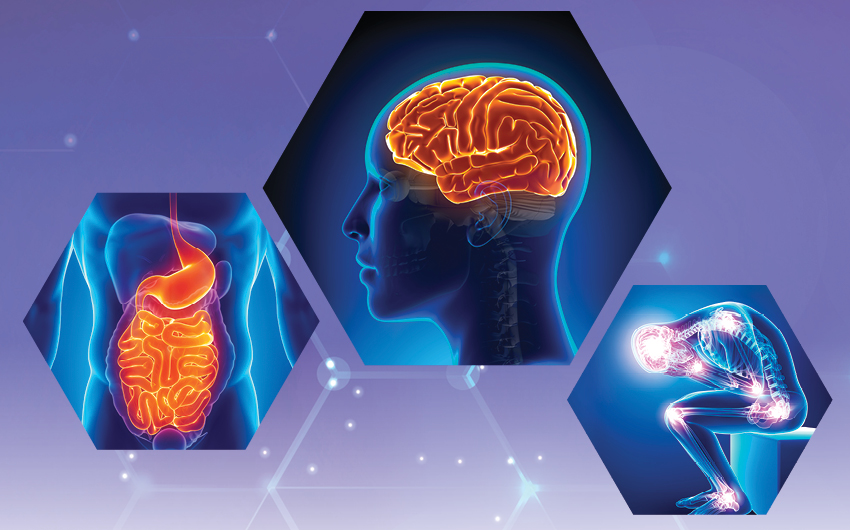
Pain and the brain
By : Michael Gibb
The relationship between pain, mental health and the decisions we make can form a vicious circle. Pain can cause anxiety and depression, which can result in bad choices.
According to a research team led by Professor Li Ying of the Department of Biomedical Sciences, the clinical connection between pain and increases in levels of anxiety, depression and cognitive disorders such as impaired decision-making has long been recognised.
The CityU team has shed new light on the kind of decision-making dysfunction caused by chronic pain through the discovery of a particular brain-signalling molecule.
 Astrocytes The groundbreaking discovery involves the role of astrocytes, star-shaped cells in the central nervous system that influence neuronal functions. The CityU researchers found that L-lactate released by astrocytes is utilised by neurons to affect information flow and synchrony in the brain neural circuitry.
Astrocytes The groundbreaking discovery involves the role of astrocytes, star-shaped cells in the central nervous system that influence neuronal functions. The CityU researchers found that L-lactate released by astrocytes is utilised by neurons to affect information flow and synchrony in the brain neural circuitry.
The discovery that L-lactate, an important energy substrate, can improve decision-making performance paves the way for more effectively mitigating cognitive disorders caused by chronic pain.
“The truly novel discovery of our studies is the role of L-lactate in neuronal activity plasticity and neuronal network synchrony in the brain,” said Professor Li, a former general surgeon whose research interests include characterising the chronic pain associated with synaptic metaplasticity that can lead to emotional and cognitive disturbances.
Animal experiments show that an L-lactate infusion in the brain increases the percentage of good decisions among normal rats by up to 48% and significantly relieves decision-making dysfunction in rats with chronic pain.
 Professor Li (second from left) discusses the findings with the CityU research team. The research titled “Astrocytic L-Lactate Signalling Facilitates Amygdala-Anterior Cingulate Cortex Synchrony and Decision Making in Rats” was published in 2017 in Cell Report, a prestigious international life sciences journal covering entire areas of molecular and cell biology.
Professor Li (second from left) discusses the findings with the CityU research team. The research titled “Astrocytic L-Lactate Signalling Facilitates Amygdala-Anterior Cingulate Cortex Synchrony and Decision Making in Rats” was published in 2017 in Cell Report, a prestigious international life sciences journal covering entire areas of molecular and cell biology.
“It is possible that there are pathological decision-making deficits in other disease conditions, such as brain injury, Parkinson’s, and Alzheimer’s disease. The mechanism responsible for decision-making deficits in specific pathological conditions is an important but complicated area of research,” Professor Li said.

